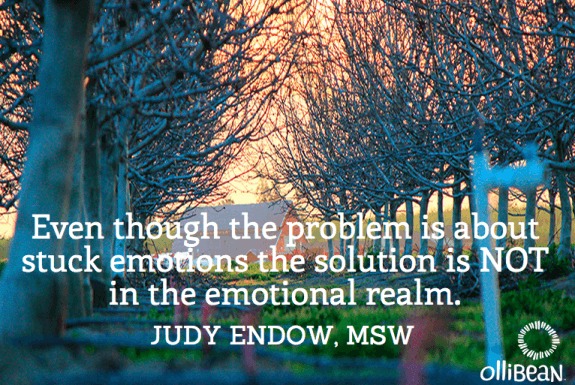
It has taken most my lifetime for me to begin figuring out stuck emotions in relationship to my autism. In discussing this with other autistic adults I have discovered many share this problem. Some describe the stuck emotions as being shut down. There are variations of experience, but there seems to be a shared experience of stuck emotions in autistics. Everyone I have discussed this with agrees that stuck emotions are quite difficult to deal with and, in fact, have led to much misunderstanding and sometimes to psychiatric hospitalizations.
Even though I have been talking to other autistics about this topic, my knowledge is very small. I am writing this blog in hopes of generating continuing dialogue about this phenomenon of stuck emotions in autistics. I will share my thoughts and experiences and invite you to do the same.
For myself I have sorted out a small, medium and large experience of stuck emotions.
Example Using Laughing
Small Stuck Emotion: Sometimes I will think something is funny and laugh like everyone in the group might laugh. When my neurology is a bit sticky I will continue to laugh longer than most – maybe twice or three times as long. Socially this tends to look strange, especially when I do not know the people I am with very well, such as in a business related context. When I am with friends they do not get too fazed by the laughing as they know it will pass and I will catch up with them soonest if they draw no attention to my stuck laughing.
Medium Stuck Emotion: When the laughing continues for a longer time it becomes more problematic. Socially, people who are not in-the-know about the stuckness of my neurology determine my long laughing is a “behavior.” When I was younger people would sometimes try punishment and other times rewards in attempts to get me to stop the undesired behavior. Neither worked. I was often called stubborn.
Large Stuck Emotion: One time my stuck laughing went on for several hours. Physically, I felt pain in my sides and abdomen and my mouth became very dry. I tried to drink water, but couldn’t do so because of the laughing. I did manage to get water into my mouth, but couldn’t swallow it, instead spewing it out. At least it relieved the dryness of my mouth for a few minutes. I was living in a group home when this occurred.
Because I was spitting water all over the glass was taken away from me and I was ordered to my room until I could act appropriately. It was very scary to be alone, in pain and stuck in the laughing. My lips stuck to my teeth. I got a wet wash cloth to put over my mouth. I started laughing mid morning, missed lunch and then woke up right before dinner. I am not sure if I stopped laughing when I fell asleep or if I laughed in my sleep for a while before it stopped. I drank lots of water, ate dinner and went back to bed, being utterly exhausted.
Different emotions translate to different kinds of stuckness. This can become dangerous at times. My neurology often goes for the match in many areas. This includes the way my brain processes information (thinking) along with the way I experience shared feelings in relationships.
Stuck Thinking
When I am thinking about something like what will I make for breakfast all the pictures of past breakfasts will pop up similar to a fast moving slide show. Since I have eaten many breakfasts this can take a long time. To make it stop I must go look in the pantry or refrigerator to get the more confined and practical visual of what I have on hand to choose from. Even though I know what food is in the house I cannot stop the images of the lifetime of breakfasts flashing through my head until I match it by actually looking at the real food choices.
When there is a match between what is in my fridge and the pictures of past breakfasts cycling through my head I can then make that breakfast. Sometimes this way my brain works is a time drain. Because I do not want to go through this process every morning I have adopted a few breakfasts to choose from – the egg whites, cheese and toast or the cereal and fruit. Predictability, routine and sameness are the best solutions to make my life work. They help prevent neurological stuckness in thinking, even though it seems contrary. Most people would describe a highly predictable and routine life as being “stuck in a rut!” For me it is anything but and, in fact, allows for freedom and fluidity in daily living.
Stuck Feelings
When it comes to relationships, I on purpose do not have a lot of close friends. This is because I pick up on my friend’s emotions and often match them in my own body. When this happens the emotion my friend feels in regard to something becomes very intense and overwhelming for me to experience. It is like a way too big a dose of empathy. Once it starts I cannot shut it off, even though my friend may be able to do so. Just like my thinking automatically goes for the match, in my close relationships my neurology automatically goes for the feeling match. Because of my autistic neurology I experience empathy too deeply. Not only is this overwhelming and draining, but dangerous.
Most autistics I’ve talked to experience this too-much-empathy magnification of other people’s feelings in their own bodies. Most talk about experiencing the two extremes – the too much empathy or complete emotional shutdown. There seems to be no middle ground. It is all or nothing. Some talk about these two extremes both happening for them automatically in that when the empathy becomes too intense they automatically shut down. Others report having the ability to choose to shut down rather than to experience the too much empathy.
For me, the overwhelming experience of too much empathy is a huge stuckness in the feeling of a close friend. The worst for me, and something that can become personally dangerous, is when I feel cut off from people emotionally. Something entirely out of my control tries to match with the person who is not in contact with me. Since the only way to match with something now perceived as non-existent is to also become non-existent myself it becomes downright dangerous.
Even though the problem is about stuck emotions the solution is NOT in the emotional realm. I have lived long enough and experienced enough therapy to know this beyond a shadow of a doubt! I think it is a movement related issue – neurological brain movement IMHO. It doesn’t help when people want to treat the above example of emotional distance or disconnect as if I was suicidal. When this occurred some years ago I was not suicidal, even though the end results would be an act of suicide.
Conclusion and Invitation
Whether stuck in a small, medium or large way or whether it is over a simple matter or a potentially life threatening situation I want people to know that autistic neurological stuckness is not something I decide to be. Even though you may call the results of this a “behavior” and try to change it, please know your efforts in this area will not have the desired impact. I do not decide to be this way, just like I did not decide to be autistic. Even so it is my reality and the reality of many I’ve talked with over time.
I really don’t know the answers for us when we get this way, but certainly know the struggles. I hope many people chime in and add to this discussion so we might all get a better understanding of emotional stuckness in autistic people. Looking forward to your comments. Please, for the sake of sharing, if you place a comment on Facebook, Linked In or any other social media place please copy and paste that comment at the end of the blog at the Ollibean site. This will be the compilation space of our shared thoughts and experiences. Here is the link to the Ollibean site:http://ollibean.org/2015/04/12/autism-and-stuck-emotions/
Thank you all so much,
Judy
 JUDY ENDOW, MSW
JUDY ENDOW, MSW
Judy Endow, MSW is an autistic author, artist and international speaker on a variety of autism related topics. Read more from Judy on Ollibean here and on her website www.judyendow.com.

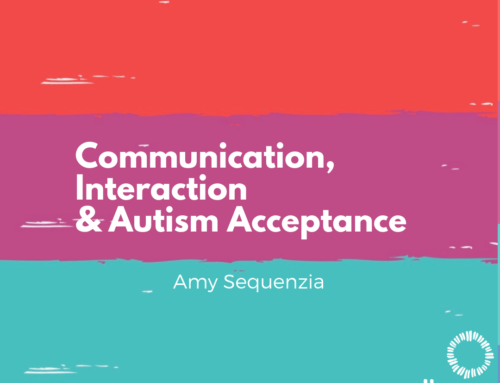
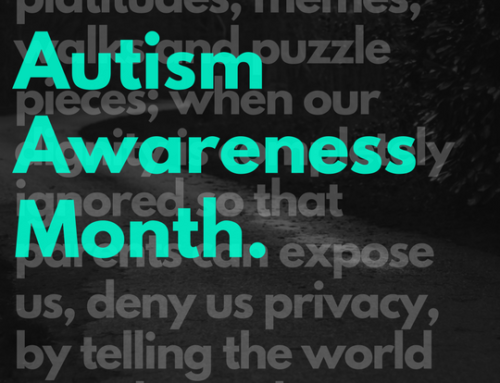
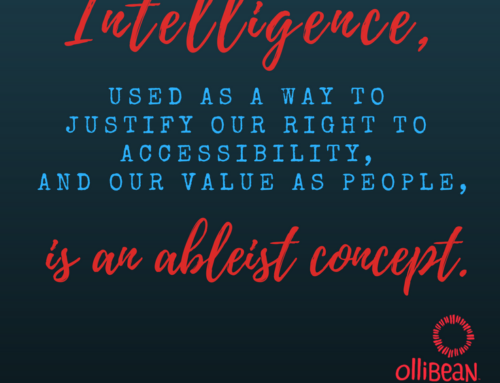
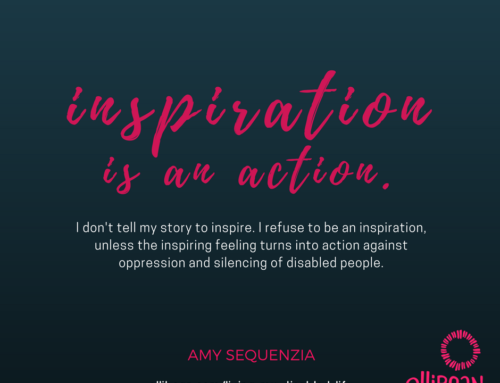
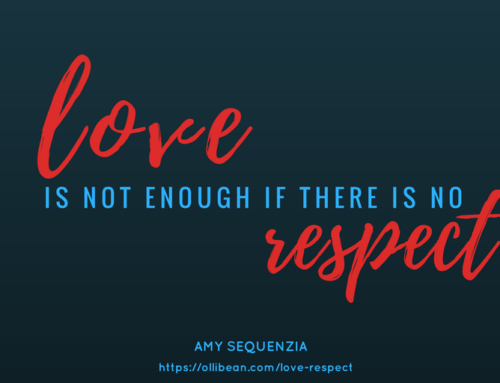
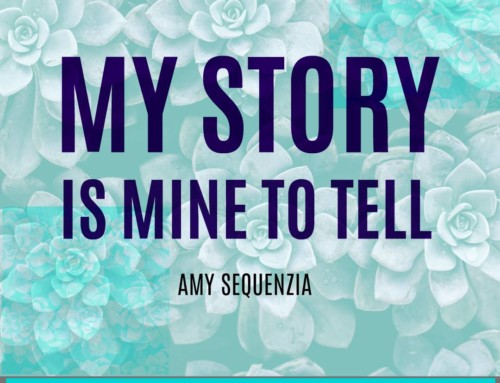
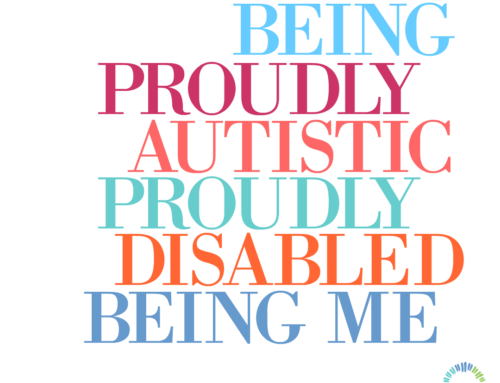
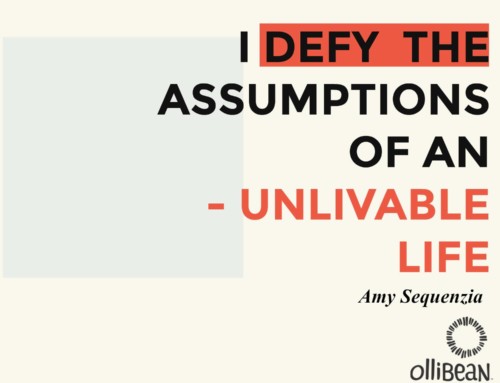
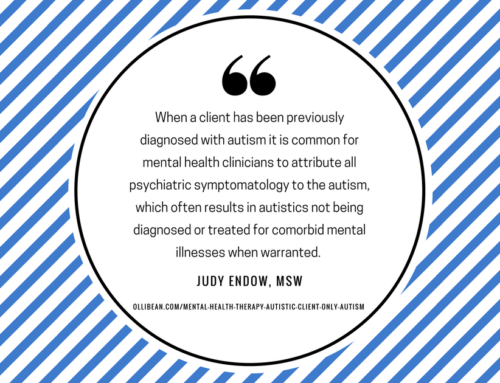
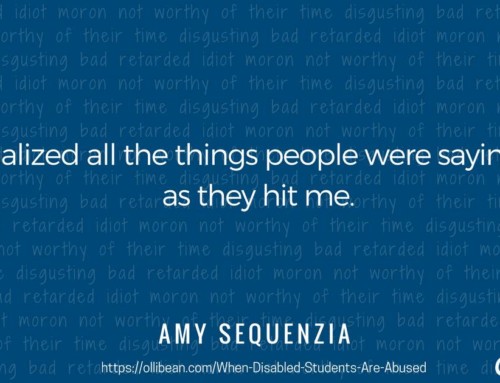

Incredible insight that helps me understand my grown autistic daughter. Now I need to share this with her service providers so they do not misinterpret her behaviors. Thank you so much!
I don’t so much get stuck in the laughter/crying immediate emotions the way I did as a kid, but the empathy/friends is absolutely that.
I had never heard of this, but as soon as I read it, I recognized it instantly. I get stuck in arguments, needing to state my point far more often than is necessary. Even when my husband has convinced me that he understands, I still can’t let go of the thing that started it.
Very, very interesting. I get stuck thinking again and again and again and…, even tend to repeat mouthing (or singing, ) the same line again and… like a broken record, or an actress in an endless rehearsal – and the intricate thing is that each train (or rather: rollercoaster, or: paternoster) of thought is associated with a certain ‘train (…or:…) of mood’. So when I, let’s say, feel very sad at one point and then get/offer myself some relief, I already know that I’ll be back to ‘very sad’ in a few moments.
…I might be getting off the track, though… (which CAN be a good thing…)
Matching my feelings to those of close friends* is something *I think* I don’t do – at least not as long as there is actual contact, because then I’m rather ‘countervailing’. Still, with complete strangers like e. g. people I read/heard about in the news, it happens often that I over-empathize spontaneously, or with acquaintances I haven’t met for a long time.
And, hmmm …… I’ve never perceived someone who’s not in contact with me (anymore) as kinda non-existent … But when someone cuts the connection to me, mutes or ‘disappears’, I tend to worry so excessively that “it becomes downright dangerous” too.
Thank you Judy Endow! This is incredible, so well written, and puts it into words so well. It’s been almost 4 years ago since I was first introduced to stuck, and it made so much sense. I get stuck thinking about things, and even saying things, which many people refer to as perseverating or a behavior. In school I once got in trouble, for asking a question phrase I’d say receptively because my teacher said if you say it one more time I’ll write you up. But because I was stuck, I asked it again, etc.
Thank you so much for this insight. My son is nonverbal so it is difficult to understand what he is thinking or feeling. However, I have noticed that he will sometimes break into inappropriate laughter for long periods of time. You also confirmed something I have suspected for a while which is that he picks up on our emotions. When I get upset I have to be very careful not to let myself show it too much around him or he starts getting upset as well.
Hi, we use cannabinoids to reduce t
Thanks for this article.
For coping, I’ve found tapping can help, to get unstuck. I found useful (and enough) the introduction video on this page: http://www.tapping.com/
It can also be used more simply, by tapping fingers on opposite arms. My (excellent) psychologist recommended this tip, and explained that it involves right brain/left brain balancing.
It helps me… perhaps it wouldn’t help for everyone or in every situation.
Sometimes I feel this way too and sometimes it is laughing, other times it is crying. This has been a challenge for me all of my life. I have been punished for this difficulty. Unfortunately, I have not found any personal remedies other than removing myself as quickly as possible from a situation. Years ago, Herb Lovett: 1949 – 1998 asked me to consider why I do the work I do. I believe it is because of stuck emotions, although I am not autistic. Thank you Judy Endow for this post
Judy profound insight on this article. I do get stuck in expressing emotions, I get stuck with transferring thoughts at times, I get stuck a lot when I get emotionally hurt and or negative emotional feelings directed to me or at me that stuck emotional regurgitation of emotional pains often get stuck in me for months and years. I can’t seem to turn off the emotional reactions and responses within me until it has run its full course with end result of meaning or cause to help me understand and process the information
Ms Endow, I read and re read this article as it describes my son. He thinks pictorially, and when he is stuck, because the pictures in his head differ from reality, it often causes him both physical and emotional pain. He has told me he cannot stop it. It was a prelude to a hospitalization for him months ago, as you mentioned it often is when confused with controllable behaviors. Now we are are trying differing methods to help guide him and understand on a new level. Thank you.
Such a helpful and clear way to understand – I so appreciate reading this information.
Cathy N Jeff Jlss · 4 mutual friends
Such a clear description of feelings most of us NT have never had == really promotes understanding.and acceptance. Thank you.
Richard JohnsonÂû · 9 mutual friends
I really liked that Judy. Thank you.
Warren Gene Moten Going though this currently its hard when my friends bad mood changes back to good…mine does not change becomes “stuck ” so I feel we don’t match any more, I will stop speaking to them….I feel im putting to much importants “matching” in the first place…
Deborah Thompson Judy, I wanted you to know that ABOARD Autism Connection of PA featured this article in their weekly newsletter. Very well written and worthy of such.
Kerrilynn Harris Âû · 6 mutual friends
I experience this. I haven’t experienced it to the same extent as you have but I do relate. It makes a lot of sense. It is frustrating when it happens as other people don’t understand and sometimes it’s hard for me to explain what is going on. It is frustrating.
Kessa Mayne
April 15 at 6:25pm · Edited ·
Hey Holly Johns and Rosie Voigts this is really interesting! Helpful info!
Show Attachment
Like · Comment · Share
Kessa Mayne Also Katrina Simons i tho k you’d find this interesting!
April 15 at 6:27pm · Like
Katrina Simons Read it! Good one!
April 15 at 6:28pm · Like
Taryn Jones Simon Judy came to my school to consult about a student, she was amazing!
Sara Pederson
April 15 at 9:38pm ·
This was quite interesting to read….I was fortunate to hear Judy speak a few years ago and am so thankful for that! The glimpses inside her mind help me when trying to understand one of Kennedy’s reactions or sometimes lack there of…..at times she really gets stuck laughing and it seems quite odd for my neurology…but this helped me understand that a bit.
I’ve never thought of it or heard it expressed as “stuck,” but it makes so much sense. Both the strong empathy and the shutting down are things I deal with and especially experienced when I was younger. It also describes my anxiety really well, that even far after a triggering event, I can’t shake the oppression of it and physically relive over and over and over. I have gotten a bit better about being able to recognize and shut out things that are likely to trigger me which has helped me avoid anxiety attacks. And I don’t feel guilty about avoiding them anymore either! (Well, not much)
This is a wonderful post, Judy! You touch on something my son, who has autism, and I have struggled with for a long time, and compelled me to write my own blog article on this subject. http://allaboutautismbni.com/2015/04/21/stuck-emotions/
Thank you again for bringing such insight into this issue.
Really enjoyed reading your blog. My eldest gets the stuck laughing, and please don’t take this the wrong way but we cracked up laughing (3 of us on the spectrum) at your descriptions about the laughing (especially the breakfasts!). Yes, that is a sort of stuck emotion too, laughing at things that non-autistic people don’t necessarily laugh at! We all get our own version of the stuckness in one way or another. The thing you said about emotions, look into the Intense World Theory of autism.
Thank you Judy, I have gained insight and understanding on autism, I was directed to your blog by my daughter , as I have a grandson who is autistic. Keep up the sharing it touches many lives and fosters understanding.
I get stuck in bad emotions. Not much helps. There is one thing that does seem to help over time. My psychiatrist had me run my 23andMe raw data through Genetic Genie and she helped me analyze the results. One gene I have metabolizes MAOA incorrectly, so she had me order these drops called MAOA + RNA from Amy Yasko’s website. That helps a great deal with stuck sadness, anxiety, and depression. If something triggers these, I used to get stuck for days or longer. Now I’m stuck maybe for a few hours or overnight, but the next day I’m feeling better. It’s worth a try.
I don’t know whether to say this publicy or not but i am stuck right now. I listened to a 5 minute video by the Asperger’s Experts on impulsiveness early this week. They said that, as with other spectrum traits, the underlying phenomenon is defense mode. So I asked my counselor if we could talk about that only I wasn’t ready & wasn’t feeling well that day (I had unintentionally taken too much med the night before). Well, I’ve been stuck on feeling vulnerable because I’m stuck on questioning every thought, motive, & action for whether it’s defense. On the same day as (after) I saw my counselor a cheer leader from the school where I just finished my PhD committed suicide. So I tried to talk to the counselor on call but that didn’t feel right. Then I talked to my counselor today. She’s much more helpful for me than the counselor on call but I think my counselor wants me to back off on writing or calling her so much. I’m still feeling lots of down emotions & tears & have a major phone interview on Monday (it’s Friday today). I need to let the tears come but it’s challenging to do that when I need to be up for Monday. Actually, I don’t need to be up but need to pretend to be up. Sorry if this is too long or inappropriate here.
My heart hurts for my grandson. We are trying deperately to communicate about how he is feeling. We know he is anxious, but he cannot tell us about what is causing him to be anxious. We also know he is brlliant. He’s 5 and reads everything. We don’t just want him to be able to tell us what is wrong, but we also want him to know that we understand and to be able to work through his feelings with him. Do you have any suggestions? Anything at all?
Try getting online and downloading a copy of this poster I have seen with drawn faces expressing different emotions and have him point out the ones that best show how he feels. Then maybe you could do some reflective listening.